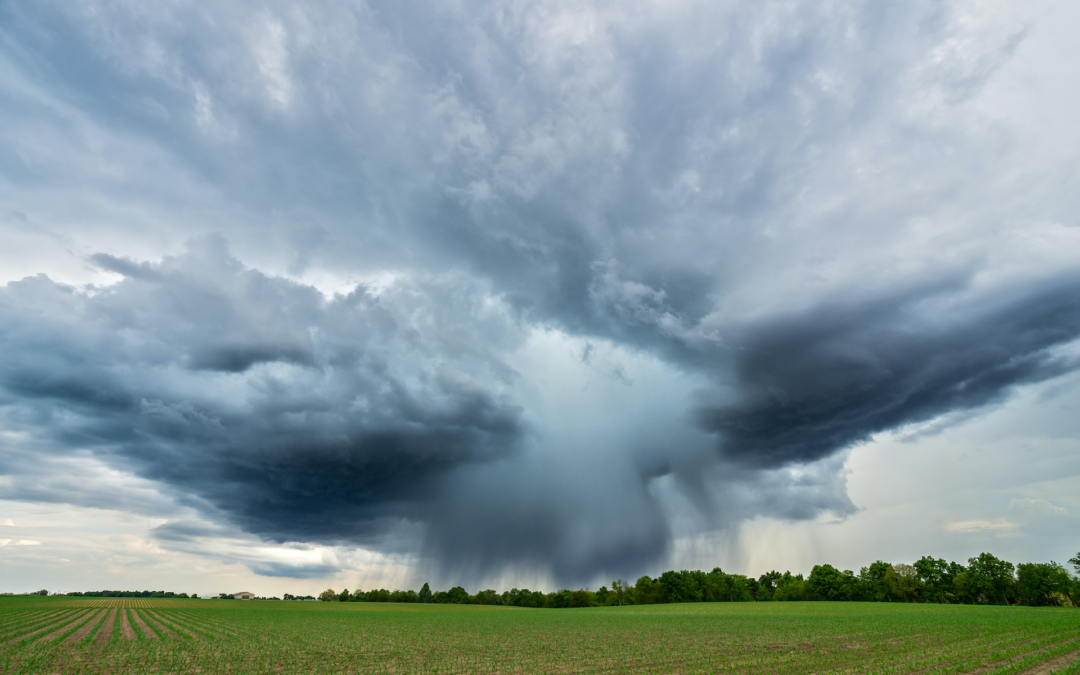Every summer in our church, we host Meet the Neighbours, a community engagement festival offering free hospitality and welcome to our local community. As this year’s event approached, we found ourselves facing one particular quandary. With summer rainfall levels the heaviest on record, and heavy showers forecast for the day itself, would it be possible to have our bouncy castles outside or would our hand be forced into a last minute change of plans? “The problem,” one of our seasoned team members noted, “is that in this part of the world you can’t have confidence in the weather.”
In Christopher Nolan’s recent movie Oppenheimer, there is a scene where the central character is asked if there is any chance that his soon to be trialled nuclear bomb will unexpectedly ignite the atmosphere and literally incinerate the planet. His answer that the chances are ‘near zero’ brings little comfort. There are times in life when it would be nice to know. There are other times when you need to know.
The word ‘confidence’ is a Bible word. In both Old and New Testaments, we discover that there are things that God wants His people, in any generation and culture, to be confident about.
In the Hebrew Scriptures being confident carries with it the idea of being secure, of feeling safe, even of having a certain carelessness that comes from knowing someone else has you covered.
Such confidence is relational rather than circumstantial. It is a confidence rooted not in what may or may not happen, but rather in a learned knowledge of the One who is there: ‘For you have been my hope, Sovereign LORD, my confidence since my youth.’ (Psalm 71v5).
Being confident does mean knowing everything. In fact, being confident about some things finds its natural corollary in not having that same level of certainty about other things.
A survey of the New Testament narrative helps us see this work out in real time. Put quite simply the first disciples of Jesus had enough confidence to get on with the life and work that He had called them to. They were confident in the trustworthiness of divine revelation handed down in the scriptures (Acts 2v29). They were confident that through Christ’s work on the cross they had been reconciled with God (Hebrews 4v16). They were confident of the inner reality of the Holy Spirit calling them to a life of obedience (1 John 3v21). They were confident in the resurrection to eternal life (2 Corinthians 5v6) and in the judgment to come (1 John 4v17).
Yet at the same time they lived without knowing everything. As they stepped out into a complex and often chaotic world as Christ’s witnesses it is evident that the apostles often did not know their next move. So much of the context within which they lived was beyond their control and beyond their knowing.
In times of imprisonment, illness, mourning, persecution, frustrated plans, and seasons of limited return for missional endeavour, an apostolic template emerges of not knowing yet being confident (Philippians 1v6).
Even in terms of their doctrine and practice they lived with the reality of ‘disputable matters’ (Romans 14v1); areas where even to the early church God’s revealed will was not crystal clear.
Living as we do, in this part of the world, there are things that we cannot be confident about. There are many things that we do not know, and we cannot know. In so many ways at a personal level we cannot know our next move. So much of the context, within which we and those close to us live, is beyond our control and beyond our knowing.
This is equally true of our wider cultural context. Will we see the return of a functioning executive? What will the constitutional future of Northern Ireland look like in ten, twenty, thirty years’ time? What changes will we see in the interface between public policy, legislation, and Christian faith? What impact will global events far beyond our shores have on our lives in the decades to come? What will the future hold for the Church in Ireland?
There are many things beyond our knowing. Christian integrity, in our personal relationships, in the church, in the public square, and indeed in our own inner selves, depends upon being clear about what we know, and equally clear about what we do not know.
There are things in life that it would be nice to know. There are other things that you need to know.
Whatever the weather, whatever the circumstances or contexts of our lives, embracing what we do not know, in our time and place, becomes an integral part of the path of discipleship. Faith, not fear, defines the Way: ‘I remain confident of this: I will see the goodness of the Lord in the land of the living.’ (Psalm 27v13).
Please note that the statements and views expressed in this article of those of the author and do not necessarily represent those of Contemporary Christianity.


Very helpful, Niall. I have found this from Psalm 112 also helpful:
4 Even in darkness light dawns for the upright,
for the gracious and compassionate and righteous man.
5 Good will come to him who is generous and lends freely,
who conducts his affairs with justice.
6 Surely he will never be shaken;
a righteous man will be remembered forever.
7 He will have no fear of bad news;
his heart is steadfast, trusting in the LORD. ”